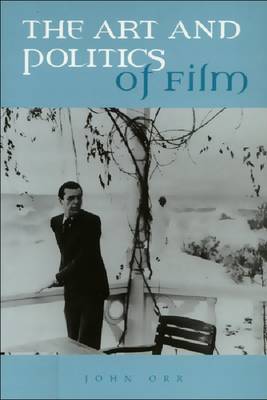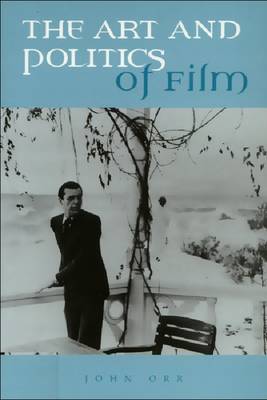
- Retrait gratuit dans votre magasin Club
- 7.000.000 titres dans notre catalogue
- Payer en toute sécurité
- Toujours un magasin près de chez vous
- Retrait gratuit dans votre magasin Club
- 7.000.0000 titres dans notre catalogue
- Payer en toute sécurité
- Toujours un magasin près de chez vous
Description
The Art and Politics of Film is the final part of a critical trilogy that explores cinema in the latter half of the twentieth century. It fuses analysis of objective form in Cinema and Modernity with a subsequent critique of subjective form in Contemporary Cinema, and reassesses the close ties of the aesthetic and the political right up to the present time. Film not only engages the question of power. Its narratives also dissect the conflicts between public and personal identity in a changing world. Different filmmakers take on different dimensions of this universal theme. The book examines the cinematic city in Kieslowski and Cronenberg; the cinema of wonder in Tarkovsky and Angelopoulos; the hyper-modern world of science fiction and horror; the time-image in Resnais, Rivette, Lynch and Stone; and the art of identity in Jarman and Jordan. At the turn of the century, film is seen as a component of a hyper-modern culture, which has displaced the modernist aesthetic of the 1960s, and now plays a key role in our mapping of the information age.Features* Offers a theory of film as an art form framed by social and political change* Provides a critical assessment of the crisis of modernism, and the role of the information age in the rise of hyper-modern film* Offers new insights into the rise and fall of the Cold War upon Hollywood genres and upon Eastern European cinema* Illuminates transformations of time, identity and sexuality in film narrative* Examines the interlocking roles of speed, space and paranoia in the renewal of the cinematic city
Spécifications
Parties prenantes
- Auteur(s) :
- Editeur:
Contenu
- Nombre de pages :
- 208
- Langue:
- Anglais
Caractéristiques
- EAN:
- 9780748611997
- Date de parution :
- 15-07-00
- Format:
- Livre broché
- Format numérique:
- Trade paperback (VS)
- Dimensions :
- 156 mm x 233 mm
- Poids :
- 290 g

Les avis
Nous publions uniquement les avis qui respectent les conditions requises. Consultez nos conditions pour les avis.






